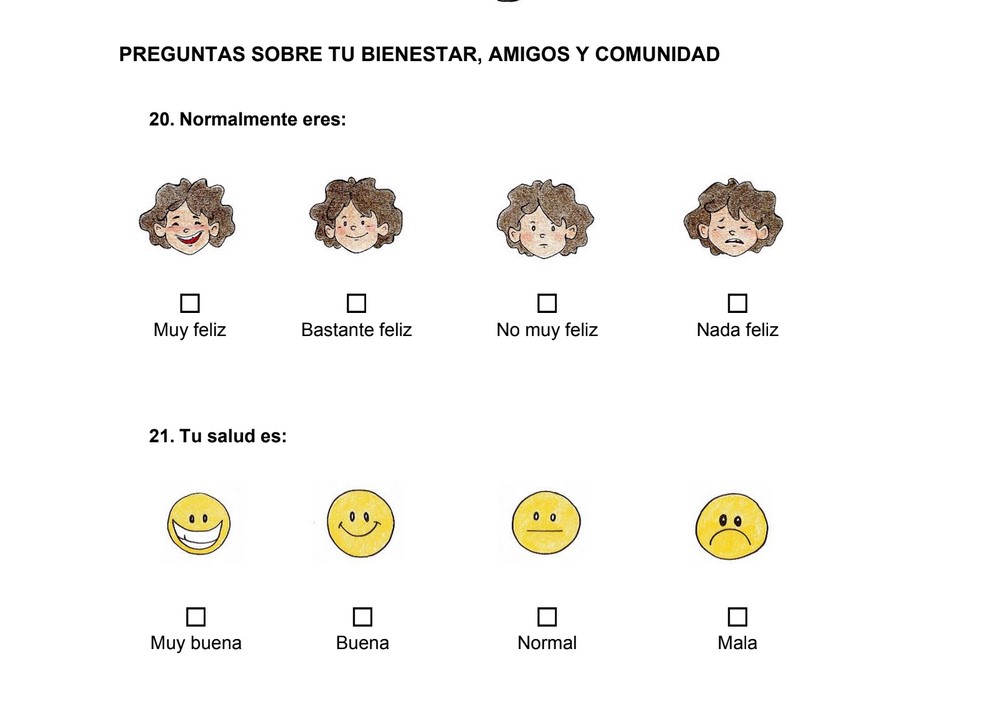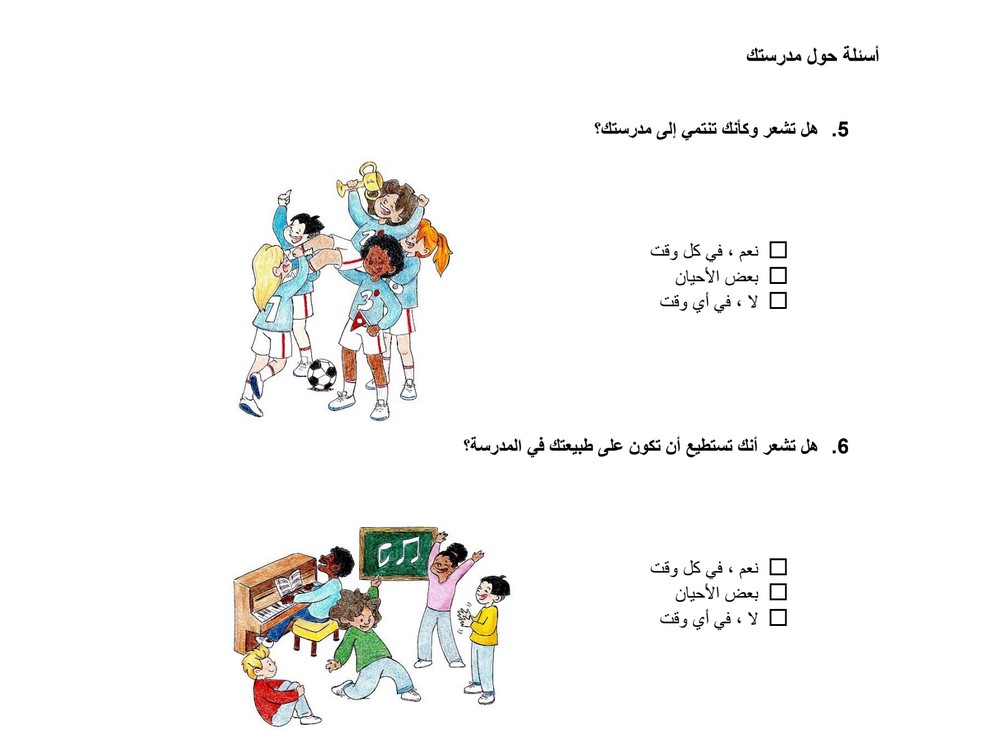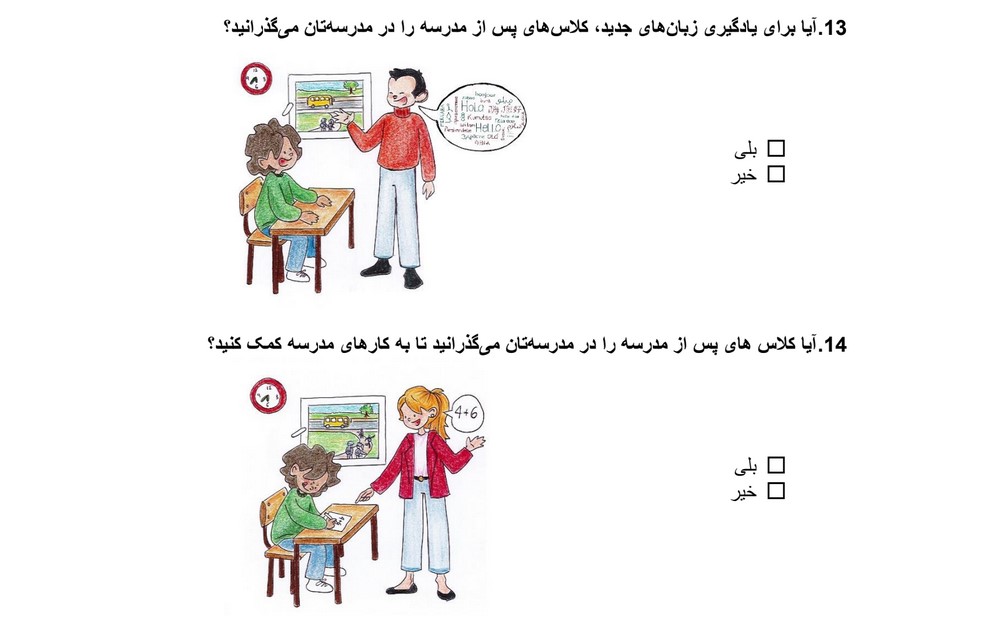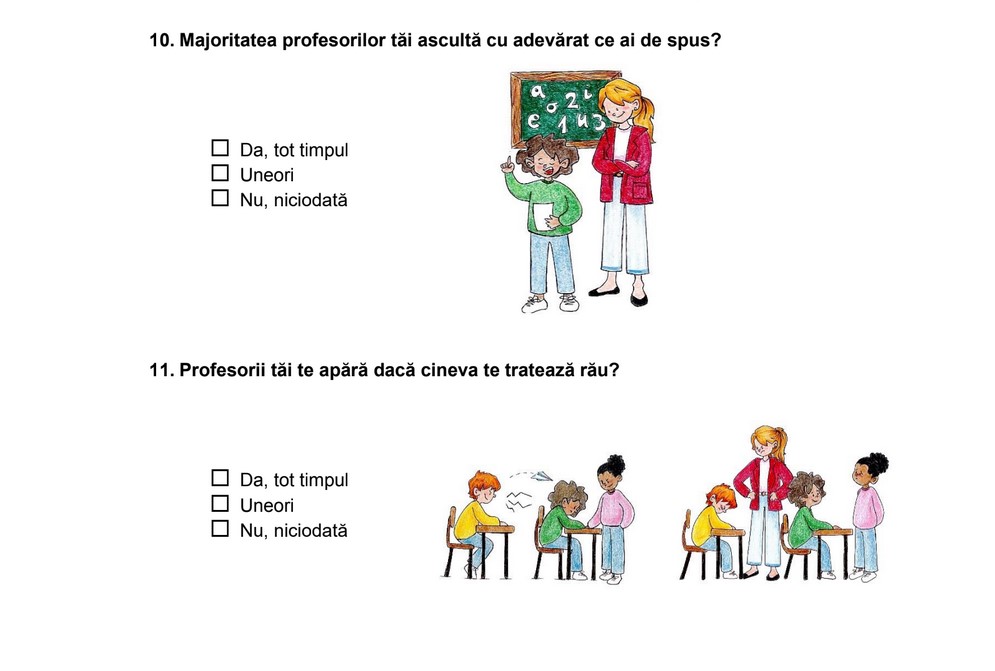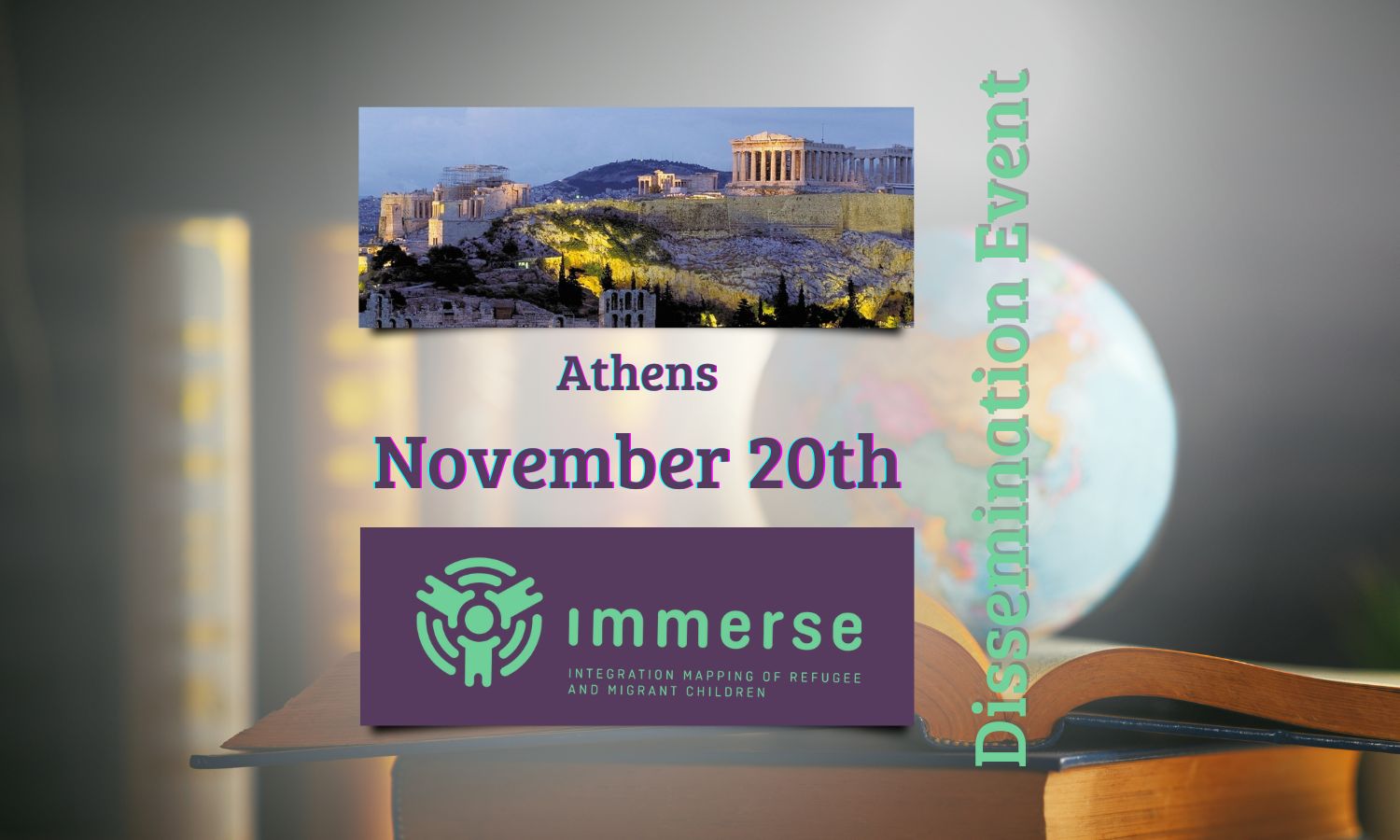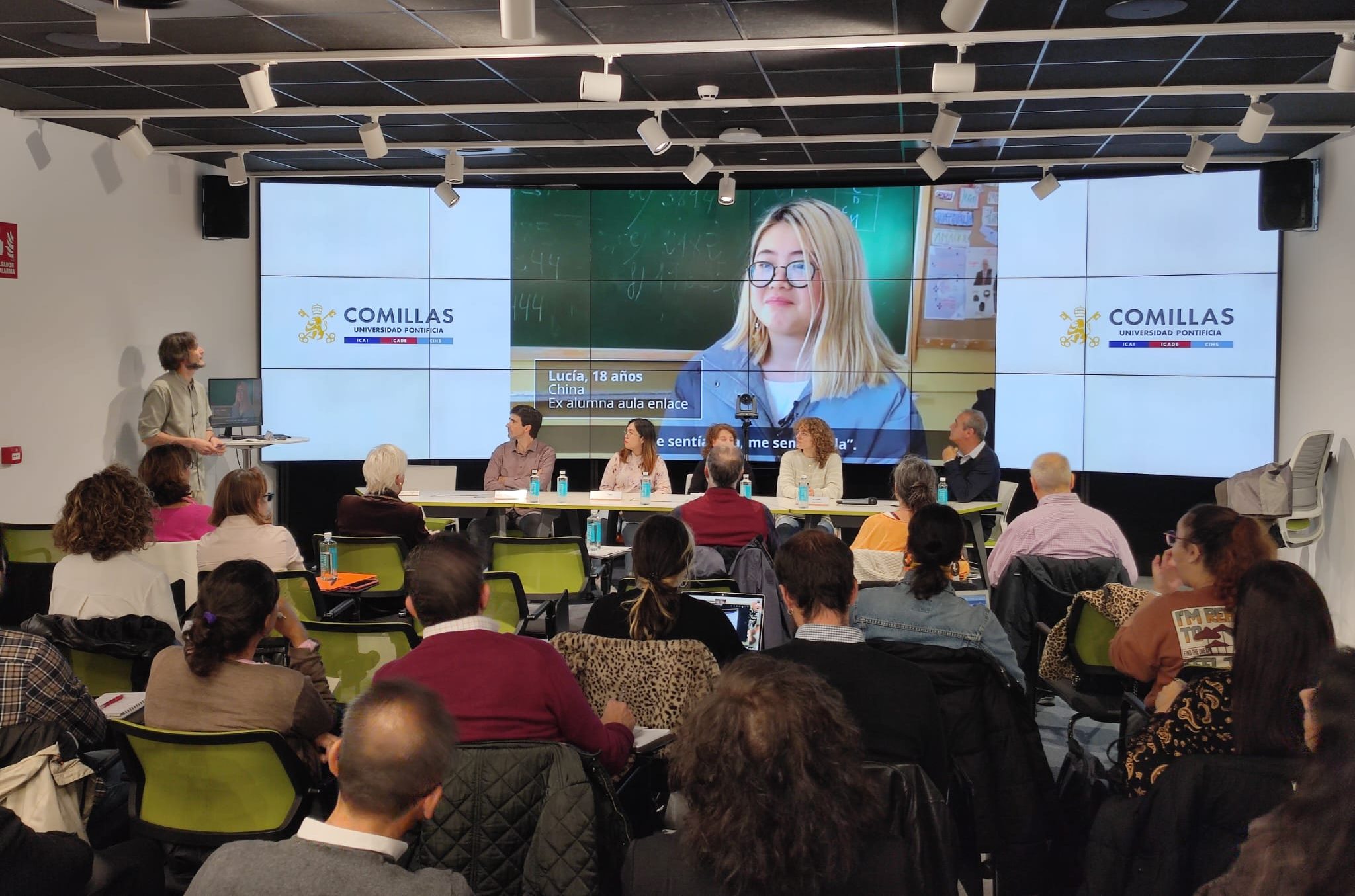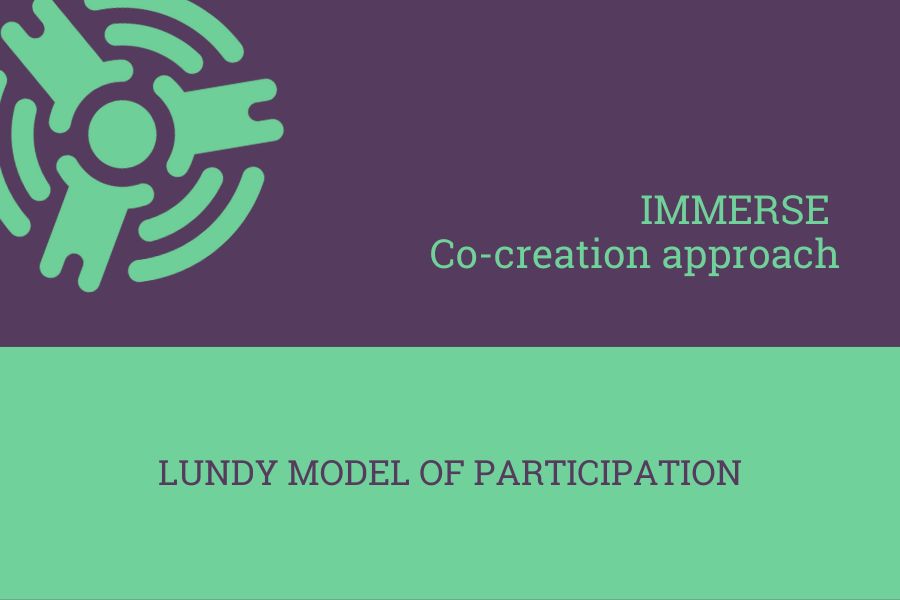Child-friendly resources for the younger children survey
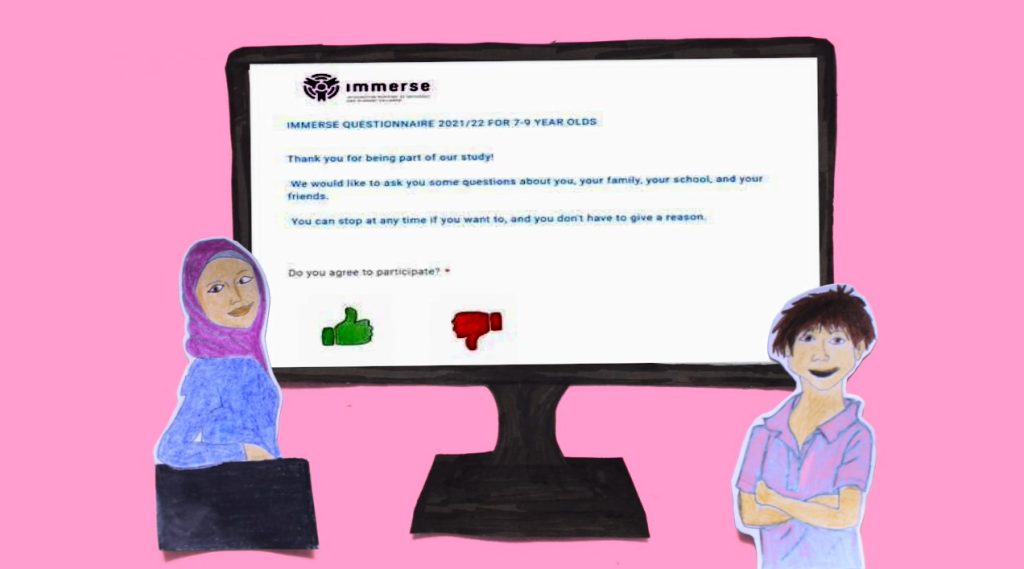
From September 2021, questionaires to gather younger children’s (aged 7 – 9 years old) opinions on the integration of migrant and refugee children, are being distributed among schools from Ireland, Spain, Belgium, Germany, Italy and Greece. As detailed, we adjusted the questionaires taking into account the Children and Youth Research Advisory Group’s feedback.
However, conducting the survey with younger children was a challenge. That’s why we used the following video as an introduction:
We also developed child-friendly questionnaires with pictures for younger children. These questionnaires were translated into the language of each participating country as well as Arabic, Chinese, Farsi, and Romanian. Here you can download the English questionaire for younger children and below you will find some examples of its translations:

